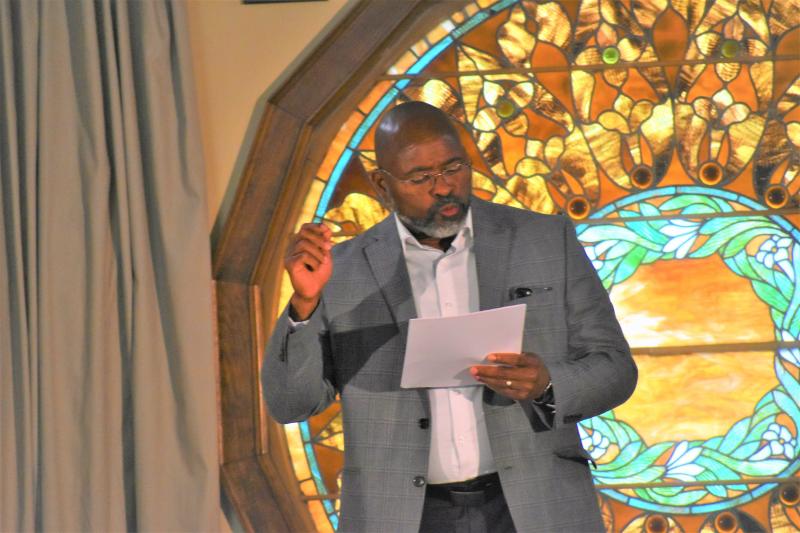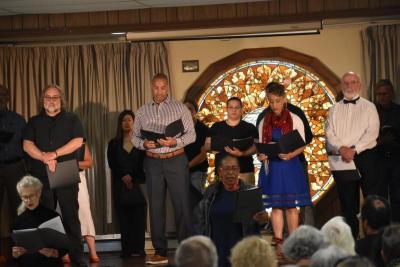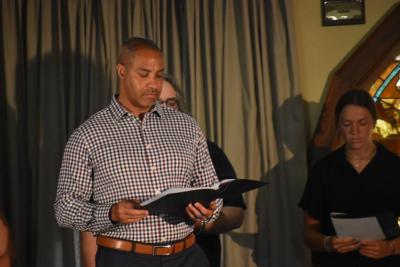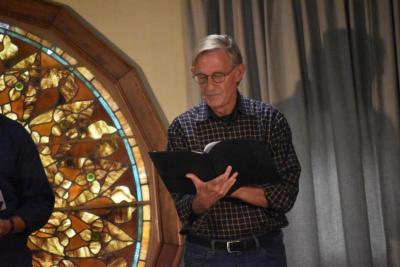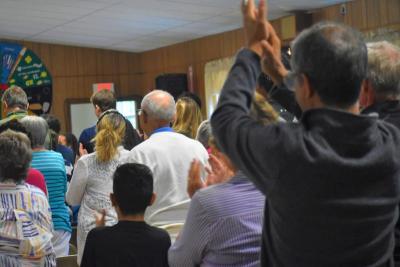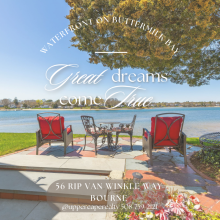‘Action is critical in this area’: Frederick Douglass discussion sheds light on local racism
MARION — A crowd filled the community center of the First Congregational Church of Marion on the morning of July 3 for a reading of Frederick Douglass’ 1852 address, “What to the Slave is the Fourth of July?”
From wall to wall, community members and visitors from other communities came to listen to the Marion Art Center and Tri-Town Against Racism’s staging of the address, featuring 16 orators.
As UMass Dartmouth’s Dr. Moise St. Louis gave an opening speech, volunteers brought in more chairs to seat attendees in the packed community center.
“It was like a fulfillment of a vision to see this place full,” chair of the church’s board George Lizee said.
St. Louis recounted pieces of the founding of America and their connection to slavery, from the Constitutional Convention, to slave-owning founders, to the three-fifths compromise.
“Thus making Black bodies and Black disenfranchisement the basis of the foundation,” of America as it was founded, St. Louis said.
A diverse set of orators, teachers at Tabor Academy, students and community members alike, took turns reading an abridged version of Douglass’ address, blocked and choreographed like a play.
The address, first given in Rochester, NY on July 5 1852, dealt with the hypocrisy of America’s ideal of freedom in a time when slavery was still legal.
Following the performance, a small group of community members gathered for a discussion on racism, led by Tri-Town Against Racism.
The broad discussion touched on topics such as communication, racism in the Tri-Town and the problems facing the U.S.
“Action is critical in this area,” Mattapoisett resident Liz DiCarlo said.
DiCarlo shared a story of her son who she said was racially profiled by community members and Mattapoisett’s police — an experience which Tri-Town Against Racism’s Alison Noyce said her two sons, born in Ethiopia, were familiar with.
“The problem in our country is gigantic, but it’s just as big here,” Noyce said.
She said some of her sons’ experiences in the Tri-Town were great, “but a lot of them painful.”
The discussion shifted to the roots of racism, and how Tri-Town Against Racism hopes to combat it.
“The outright, overt racists are not the problem,” Linzee said. “It’s the ones who don’t know what they’re doing.”
Tri-Town Against Racism’s Executive Director Jason Chisholm agreed, and noted that the anti-racist organization’s target audience isn’t those who intentionally cause harm, but those who are unsure how to handle conversations around racism.
“It’s recognizing that very few people wake up and say, ‘I’m going to cause harm today,’” Chisholm said.



